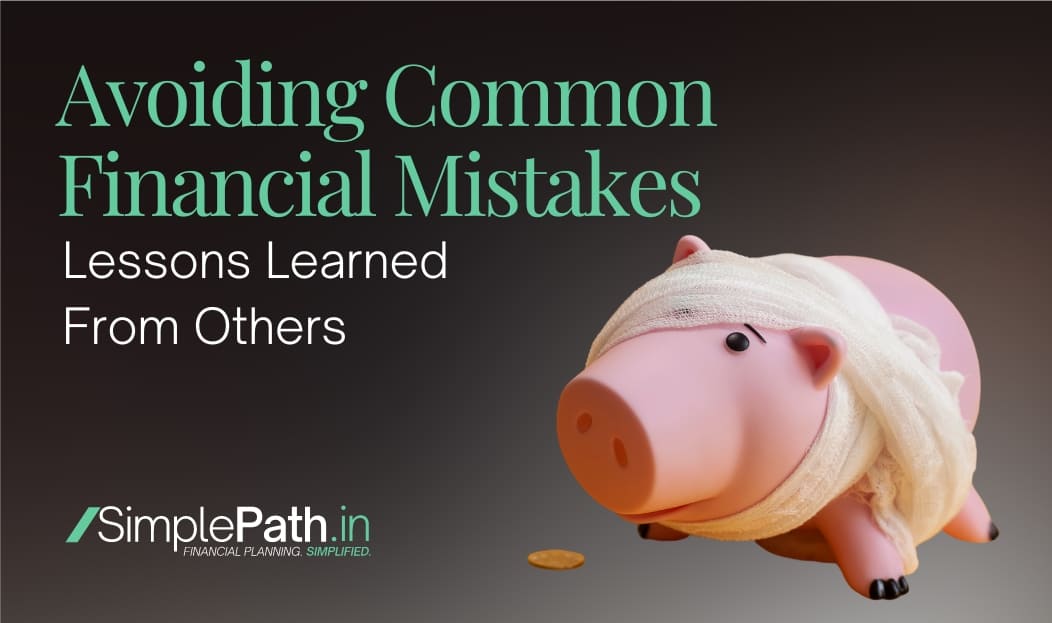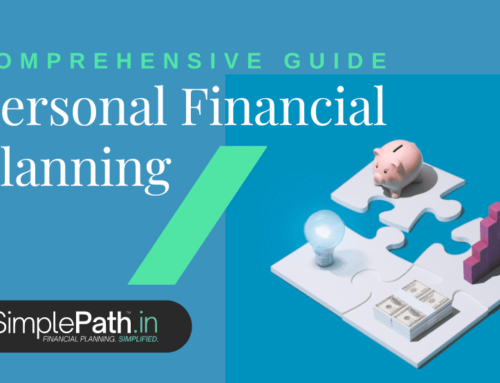As the saying goes, “Experience is the best teacher”. However, when it comes to personal finance, learning from our own mistakes can be a costly affair. It is wiser to learn from the financial mistakes of others and avoid common financial pitfalls.
Managing finances can be a daunting task for many, especially when there are so many temptations to spend money on things we don’t really need. While there’s no denying the importance of enjoying life and treating ourselves to the occasional splurge, it’s equally important to stay disciplined when it comes to our finances.
Unfortunately, not everyone is able to maintain this discipline, and some end up making costly mistakes that can have long-term consequences. That’s where learning from the experiences of others can be incredibly valuable.
In this blog post, we’ll be taking a look at some of the most common financial mistakes people make, and the lessons we can learn from them. We’ll be sharing real-life stories from individuals (names changed to protect identity) who have made these mistakes, and how they were able to recover and get back on track.
Whether you’re just starting out on your financial journey, or you’re looking to make some changes to your current approach, we hope that the insights shared in this post will be helpful to you. So, without further ado, let’s dive into some of the most common financial mistakes and what we can learn from them.
-
Not Having an Emergency Fund
Meet Rohit, a 35-year-old IT professional who learned the hard way about the importance of having an emergency fund. A few years ago, Rajesh lost his job due to company downsizing. He had no savings to fall back on and ended up borrowing from friends and family to make ends meet. This experience made him realize the importance of having an emergency fund. He started saving regularly and now has enough money set aside to cover his expenses for six months.
Lesson Learned: Emergencies can happen to anyone, so it’s important to have a financial cushion to fall back on. This is a common mistake that many of us make – we don’t create an emergency fund to deal with unexpected expenses. An emergency fund is a separate savings account set aside for unexpected expenses such as a medical emergency or a sudden job loss. We can learn from Rohit’s mistake by prioritizing the creation of an emergency fund and regularly contributing to it. Experts suggest avoiding this financial mistake by having at least three to six months of living expenses saved up in an emergency fund.
-
Ignoring Insurance
Insurance is often seen as an unnecessary expense by many people. However, it can be a lifesaver in times of crisis. Many people who have ignored insurance have regretted it later.
One such example is of Ramesh, who was a healthy 30-year-old man. He had a family of four and was the sole breadwinner of the family. He had a well-paying job and was able to provide for his family. However, he never bought any insurance, thinking that it was a waste of money. One day, he met with a serious accident and was hospitalized for several months. His medical bills were exorbitant, and he had to take a loan to pay for them. This loan burdened him and his family for years to come.
In a similar event, Sunita, a 40-year-old homemaker, learned the hard way about the importance of insurance. Her husband was diagnosed with a critical illness, which required expensive treatment. They had no health insurance and had to dip into their savings to pay for the treatment. This left them financially drained and struggling to make ends meet.
Lesson Learned: Insurance is an important part of financial planning. Avoid this financial mistake by making sure to have adequate coverage for health, life, and property. This can provide financial security and peace of mind.
-
Overspending on Credit Cards
Meet Rahul, a 25-year-old engineer who loves to travel. He often spent beyond his means to take exotic trips, using credit cards and personal loans to fund his adventures. Over time, he found himself drowning in debt and struggling to make payments.
Lesson Learned: It’s essential to live within your means and avoid overspending. Create a budget and stick to it. If you do use credit, make sure to pay off the balance in full each month.
-
Investing Without a Plan
Rajiv, a 45-year-old businessman, learned the hard way about the dangers of investing without a plan. He had heard about a hot new stock and invested a large sum of money in it without doing any research or consulting a financial advisor. The stock ended up tanking, and he lost a significant portion of his savings.
Lesson Learned: It’s important to have a solid investment plan that aligns with your financial goals and risk tolerance. This financial mistake can be avoided if you do your research and consult a financial advisor before making any significant investments.
-
Not Planning for Retirement
Meet Anjali, a 55-year-old teacher who loves her job and has no plans to retire anytime soon. She had never really thought about retirement planning until she attended a financial planning seminar. She realized that she needed to start planning for retirement if she wanted to maintain her current lifestyle.
Lesson Learned: Retirement planning is important, no matter how far away it may seem. Start planning early and make sure to take advantage of retirement accounts and other retirement planning tools.
-
Failing to Budget and Track Expenses
Without a budget, it’s easy to overspend and lose track of where our money is going. Let’s take the example of Rahul, who never budgeted his expenses and ended up overspending on unnecessary things. He had no idea where his money was going and always struggled to make ends meet.
Lesson Learned: We can avoid this financial mistake by creating a budget and tracking expenses regularly to stay on top of our finances. It’s important to identify our expenses and prioritize our spending.
By learning from the experiences of others, you can avoid common financial mistakes and build a strong financial foundation. Keep these lessons in mind as you plan for your financial future.
At Simple Path, we help you create a financial plan that suits your needs and goals. Contact us today to learn more about how we can help you achieve financial freedom.





